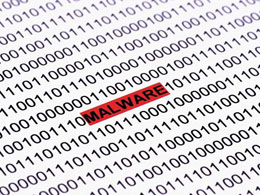
Polish Financial Regulator Infects Various National Banks With Malware
All of this goes to show the financial sector remains insecure despite all of the recently issued warnings. Criminals often use malware to attack financial institutions around the world. In most cases, these efforts are more than successful, creating a strain on the financial ecosystem. Things are getting out of hand in Poland, though, as the financial regulator allegedly infected various banks with malware. A rather disturbing development seemingly orchestrated by foreign hackers. It is not often a financial regulator infects banks with malware. It appears the Polish financial regulator....
Related News
Palo Alto Networks has discovered a unique malware family that can mine bitcoins via the victim’s CPUs and GPUs. The malware, called PWOBot, is completely written in Python and compiled via PyInstaller, generating a Microsoft Windows executable, according to a Palo Alto Networks posting. The malware has affected European organizations, mainly in Poland. A Polish file-sharing service delivers the malware. The malware can download and execute files, log keystrokes, execute Python code and mine bitcoins via the affected computers’ GPUs and CPUs. The malware has been noticed as far back as....
A piece of malware is currently terrorising computer users by encrypting their data and charging a ransom - in fiat currency or bitcoins - to decrypt the information. Called CryptoLocker, the ransom malware is contained within phishing emails, so it infects a users computer when they open an attachment in one of these messages. Yuval Ben-Itzhak, CTO at security software company AVG, said: "Ransom malware has been around in different variations since the early 1990's." He went on to explain that a victim of the malware would typically receive an email that pretends to be from a well-known....
A Taiwanese hardware company has warned its clients about a targeted crypto mining attack against their storage devices. The malware infects NAS devices connected to the internet by installing a crypto-miner named Dovecat. Threat Actors Install Malware That Illicitly Mines Bitcoin According to the advisory revealed by Bleeping Computer, the malware mines bitcoin (BTC) on NAS devices without alerting its operators. The company elaborates on the findings: QNAP NAS can become infected when they are connected to the Internet with weak user passwords. The malware campaign launched by unknown....
Cryptocurrency mining malware for PC platforms has been around for a while, but now it has gone mobile, specifically via the Android OS. A team of security researchers from Trend Micro has managed to identify two apps that can use your Android device to mine litecoin and dogecoin. The apps in question are called Songs and Prized, and both are available from the Google Play Store. Songs has between one and five million downloads so far, while Prized has 10,000 to 50,000 downloads. This is not the first case of mining malware targeting new and unusual platforms. Linux recently got what was....
For four days last week Yahoo's European servers were the equivalent of a cyber Typhoid Mary, spreading disease to anyone who came near. Yahoo was the victim of a major security breach, which caused its servers to send out millions of malware-laden ads to an estimated two million European users. Suspicions were first raised by Dutch security outfit Fox IT, which estimated that Yahoo's servers were responsible for 27,000 malware infections every hour the malware was live on Yahoo's website. Yahoo confirmed the embarrassing attack in a statement: "From December 31 to January 3 on our....





